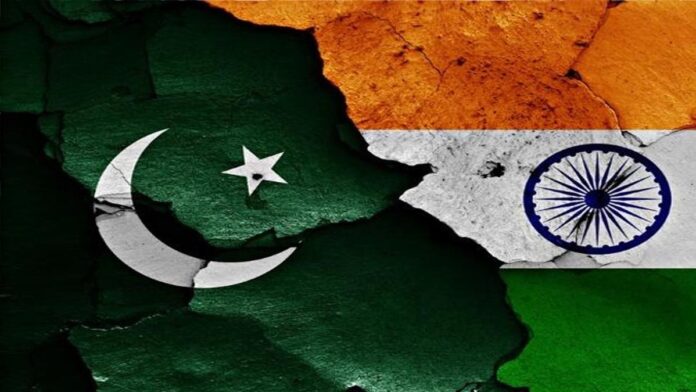LAHORE:
The sour relationship between India and Pakistan, owing to the former’s inhumane stance on Kashmir, now into its third year is impacting bilateral trade worth billions between the two nations with no visible signs of resuming anytime soon.
Even though recently, the Narendra Modi led government has opened its side of the Kartarpur Corridor after consistent protests by the Sikh community on both sides of the border, trade has been terminated with India since August of 2019 when the neighboring country abolished the special status of Occupied Kashmir.
As a result, thousands of traders, contractors, and middlemen in both countries have lost millions of rupees, especially those who relied on trade through the Wagah border. Earlier this year, in March, the Ministry of Commerce sent a summary of imports of sugar, cotton, and yarn from India, to the Federal Cabinet, which could have led to the resumption of trade between the two countries but the summary was rejected.
Read also : Pakistan’s Exports to US, China, UK surge
Some traders like Qayyum Khan, a resident of Lahore, who were hopeful that the summary would be approved were left dejected. Khan, who imports gypsum from India, a substance used as fertilizer and in plasters, while talking to The Express Tribune, lamented, “my gypsum worth millions of rupees, lying near the Wagah border, has deteriorated and I have made a massive loss.”
While Khan, and other traders like him, support the government’s position that relations with India cannot be restored until the special status of Kashmir is restored, they questioned why had the Pakistani government granted permission for Afghan-India transit.
“If Afghan-India trade can be made through Wagah, trade between our two countries should also be resumed,” he implored. Back in 2003, the bilateral trade between the two significant players in Southeast Asia stood at 250 million dollars but from 2004 to 2007 when there was peace between the two, these bilateral trade numbers rose to roughly 3 billion dollars, as per Former Ambassador Jalil Abbas Jilani.
Jilani, who has served as Pakistan’s ambassador to the United States, while talking to the Express Tribune, said, “the onus of the suspension of trade is on India as they abolished Article 37, in violation of the bilateral agreements with Pakistan and created an atmosphere of unrest and tension.”
He was of the view that India had more to lose due to trade closures as it exports a significant number of its goods to Pakistan. Jilani believes that trade between the two neighbors can only be restored once there is a resolution on Kashmir.
“At the moment, Pakistan’s position is that there can be no peace and order until India withdraws its decision on occupied Kashmir,” he said. Others like Rajdeep Upal, President of Confederation of International Chambers of Commerce Amritsar, however, believe that the commencement of trade is the only way the two countries can resolve their issues. “Instead of trading through a third country, the resumption of trade will strengthen the contact between residents of Pakistan and India and also impact the politics of both countries,” he predicted while conversing with the Express Tribune over the phone.
Uppal opined that the revival of the trade would benefit the economies of the two neighbors and would create much needed employment opportunities for millions of people. “Some elements in both countries want the current situation to stay and we serve their purpose by eliminating trade and mutual relations,” he said. Uppal is hopeful that the two countries will see the benefits of trading through the Wagah border and termed it as the most prompt and cost-effective corridor of exchanging goods and services. “If both countries continue to import their necessities from another country or trade through a third country, we do not gain any benefit but those countries do,” Uppal told.

